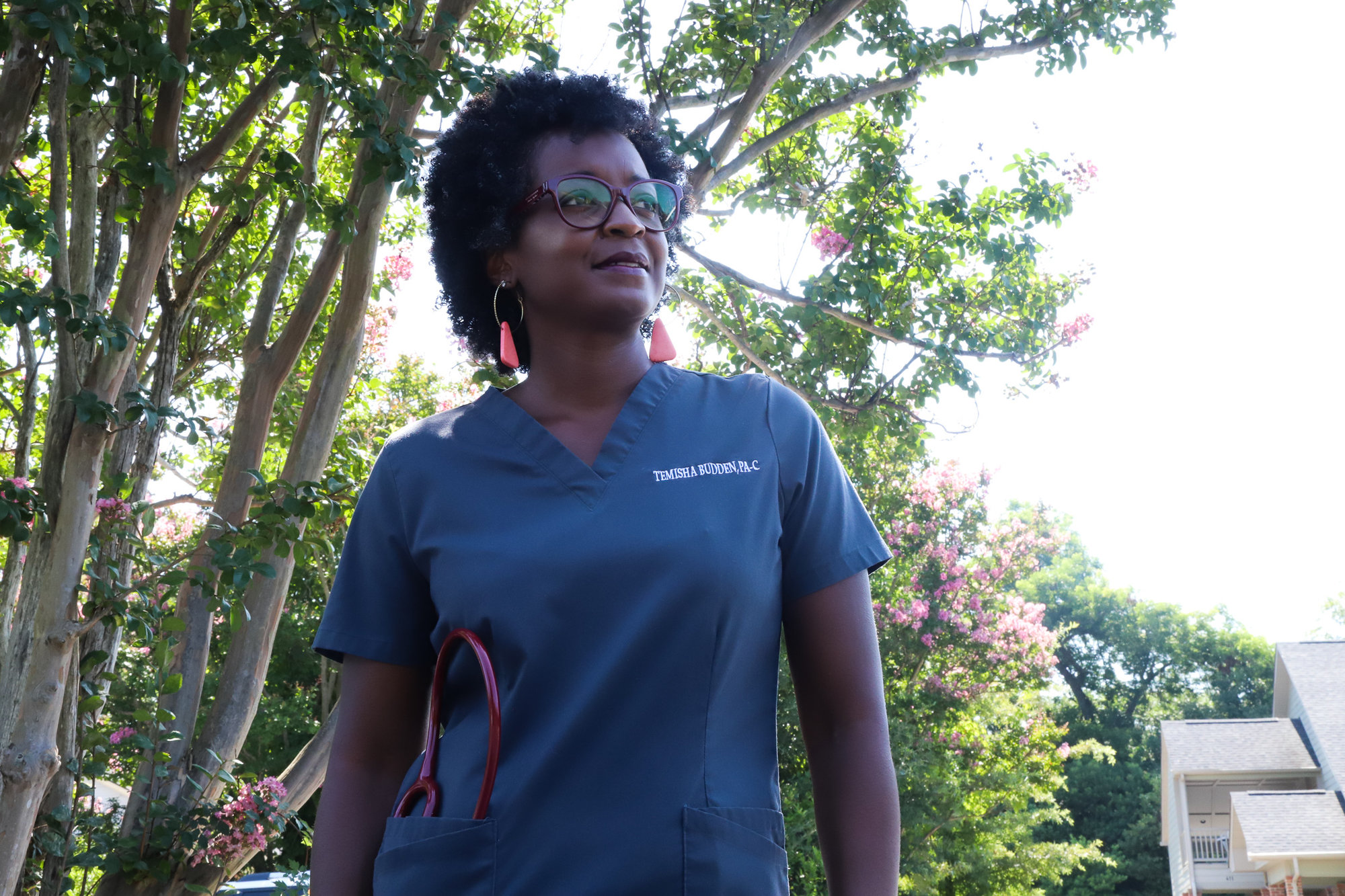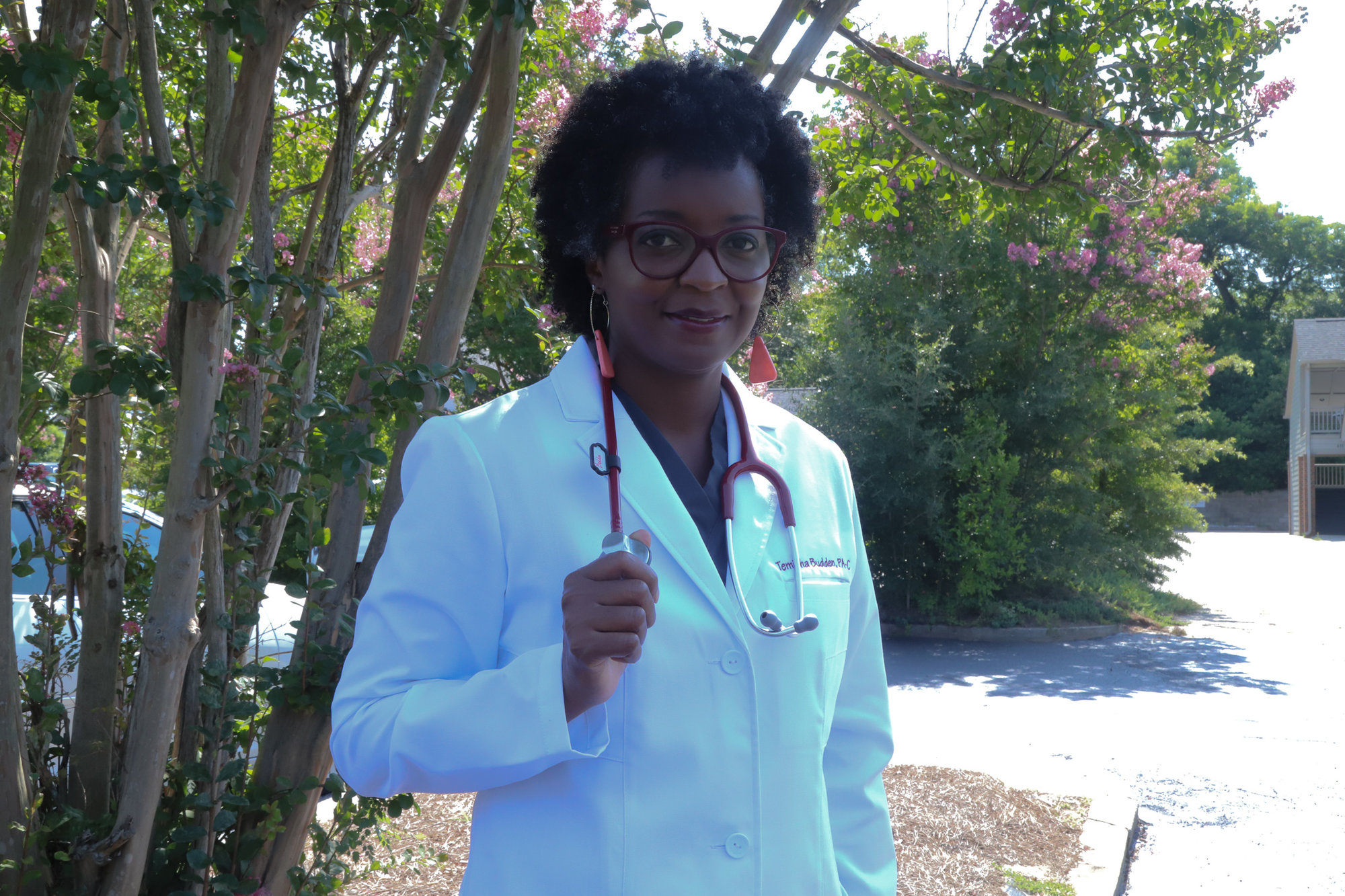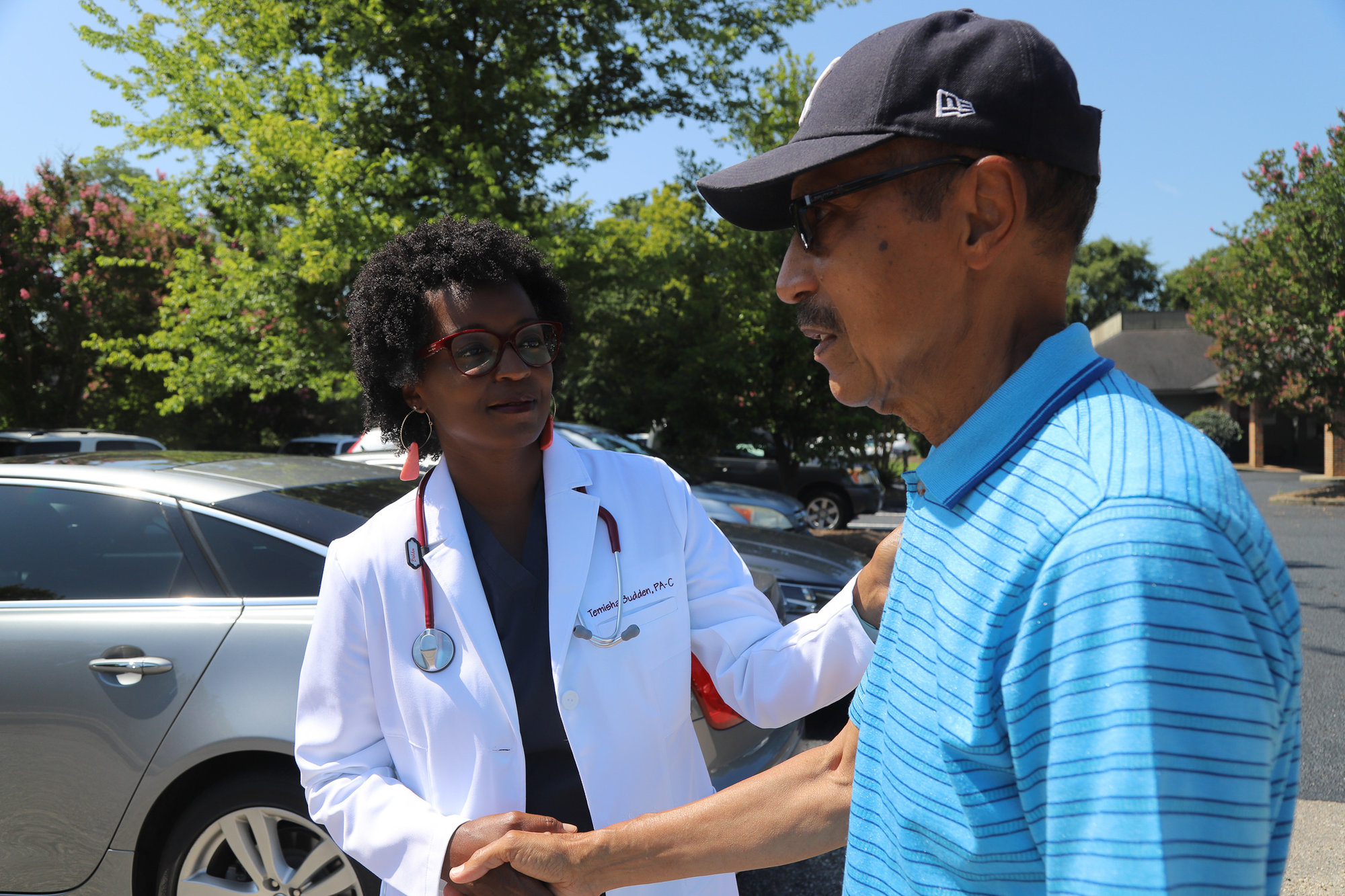Sumter woman 1st African-American to lead South Carolina Academy of Physician Assistants
New president wants to increase diversity of PAs across state
kareem@theitem.com
After 45 years, a Sumter woman has broken a major diversity barrier in the history of a state medical organization.
Temisha Budden, a veteran physician assistant, on July 1 became the first African-American to be elected as president of the South Carolina Academy of Physician Assistants since its founding in 1976.
The 47-year-old has served in several different roles in the organization since joining in 2002, with her previous role being vice president of the organization's board last year. SCAPA promotes cost-effective and accessible health care through professional development of physician assistants in the state.
A medical professional with more than 20 years of experience at different levels in the tri-county, Budden has worked as a PA in Cardiovascular Care Group, Midlands Emergency Physicians, Sumter Internal Medicine Associates and Sandhills Medical Foundation and currently serves war-bound veterans at the Sumter Clinic's Dorn VA Medical Center.
She was pleased to hear the news about her new role but was even more pleased, and a little shocked, to hear she was breaking a barrier in the organization's history. She said she had no idea she was the first African-American before the nomination.
Budden recalled that after winning her nomination, someone questioned whether she was the first African-American to be elected president of the organization, and she said she began researching SCAPA's history. When she asked other past and present board members, she discovered she was indeed the first.
"It was kind of news to me. When I was first nominated for the position, I had no idea that it was going to be a historic representation to be serving as president," she said.
Budden is happy to make history in the organization and calls it a "blessing and an exciting opportunity" for her and SCAPA.
A journey onto a new path
Reflecting on her past, Budden always knew she wanted to be in health care.
"I'm a type A personality, so I like talking to people. I like being of service to others. I knew I wanted to do something in the health care professional course," she said.
She, like other young students, only knew about health professions such as doctor or nurse and didn't even consider becoming a physician assistant. In fact, she admitted she was going to become a pediatrician. After graduating from the University of South Carolina and working her first job in the patient and accounting department at Richland Hospital - doing unrelated patient care - she came across a physician assistant in a lab coat, something that amazed the young Budden.
"It just triggered something in me to look into, and I realized that the job I was doing was just a job, not a career," she said. "From there, I started researching 'What was a PA? What can a PA do?' and decided I was going to apply to PA school and ended up in it, and the rest is history."
She attended and graduated from the University of Medicine and Dentistry of New Jersey, before its merger with Rutgers University, in 2001. She returned to her hometown of Sumter in 2002.
When Budden looks back on her past and how it led to her current promotion, she's glad that she took it.
"Sometimes you can plan your path in your mind, but it doesn't always go that way. Sometimes it's even better than you can imagine," she added.
The responsibilities of leadership
Now taking on the responsibilities of president, she hopes to improve the organization's standards and continue working on things her predecessor started, such as their leadership academy.
In this academy, SCAPA members reach out to younger students and mold them for leadership positions in the profession. However, she said her main goal is to focus on the value of racial and ethnic diversity in the program.
"There's five PA programs in the entire state. My hope is to increase the diversity and inclusion of those programs," she said. "What you'll find is although there are many PAs in South Carolina, the percentage that are African-American is very small."
Although it is difficult to compare the racial composition of physician assistants by state, according to 2017 data from the National Commission of Certification of Physician Assistants, 3.7% of PAs are Black, and this data show PAs are overwhelmingly white women.
Budden said she thinks most people aren't aware of the profession or don't know it exists and that it is severely underrepresented. She hopes to rectify this issue.
"We hope to increase the awareness of the profession, increase the diversity in the profession with students applying to PA schools, and once they graduate keeping those same people in our community in South Carolina," she added.
She hopes to help African-American students who don't know about other options in the health care field and push for them to go to PA school to focus on caring for rural and underserved communities in the state.
"We're just trying to get it out to do some outreach to some of our schools and just let kids know that if you pick a career in health care, there are so many other things you can do besides doctor or nurse," she said. "We're trying to let them know this is a viable career that you have a separate career path for where you can receive some of the same motivation as other health professions."
She is excited to get to work on motivating students, serving the community and helping to improve access to health care for South Carolinians.
"I'm just looking forward to continue progress and increasing the diversity of PAs in South Carolina," she said.
Her term as president will run until the end of June 2022, and as she spoke about what the future holds, one thing is for certain: Budden's victory gives hope to others.
"This is just the beginning," she said. "I may be the first, but I won't definitely be the last."
More Articles to Read






